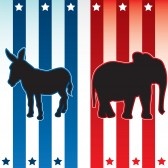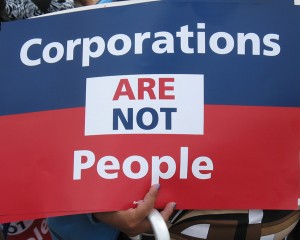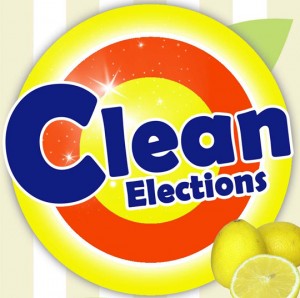By Adam Klasfeld
Court House News
A polarizing debate has erupted over a new anti-trespass law, with some saying it criminalizes protest and others calling it a harmless patch of a security oversight. The White House describes the Federal Restricted Buildings and Grounds Act of 2011, or H.R. 347, as legislation that “makes it a federal crime to enter or remain knowingly in any restricted area of the White House, the vice president’s official residence, or their respective grounds without lawful authority.”
Though seemingly innocuous, civil libertarians took issue with the language of the bill, which defined “restricted buildings as grounds” broadly enough to include any place where Secret Service personnel are stationed. At the Lawfare national security blog, D.C.-based attorney Wells Bennett speculated that this could include demonstrators loudly protesting the Obama administration’s targeted-killing program. After the bill sailed through the House of Representatives in a 388-3 vote, John Tjaden, a board member with the American Civil Liberties Union of Sacramento, sounded the alarm in a blog post titled, “Goodbye, First Amendment: House Bill HR 347 will make protest illegal.”
President Barack Obama, a former constitutional law professor, signed it Thursday? A spokesman for Rep. Thomas Mooney, the Florida congressman who sponsored the bill, called the controversy “a whole lot of kerfuffle over nothing,” in an interview with Reason Magazine. “This doesn’t affect anyone’s right to protest anywhere at any time,” spokesman Michael Mahassey insisted. “Ever.”
Mahassey said the bill updates existing law, allowing the government to federally prosecute those who would climb over the White House fence. In that sense, the H.R. 347 controversy mirrors that of the 2012 National Defense Authorization Act (NDAA), widely known as the Homeland Battlefield Bill for allowing the military to indefinitely detain U.S. citizens without charge or trial. NDAA defenders say the government already claimed that power under the Authorization to Use Military Force, which courts have upheld in subsequent case law.
Civil libertarians countered that the NDAA took narrowly tailored legal opinions and expanded them to have global jurisdiction. ACLU policy advisor Gabe Rottman told Courthouse News that, in both instances, small changes to existing laws could have profound changes. One such change in H.R. 347 is the “intent standard,” which the law reduced from “willfully and knowingly” to “knowingly,” Rottman said. A federal appeals court parsed this difference in 2005 while considering the case of Brett Bursey, a South Carolina activist arrested for protesting then-President George W. Bush at the Columbia Airport. In the opinion, the 4th Circuit agreed that “willfully” had a stricter standard than “knowingly.”
“Divining the meaning of ‘willfully’ in criminal statutory mens rea terms has long bedeviled American courts,” the unanimous opinion states. A footnote continues: “We focus our discussion on whether Bursey ‘willfully’ violated the statute, because, generally, ‘[m]ore is required’ with respect to conduct performed willfully than conduct performed knowingly.”
Now the head of the SC Progressive Network, Bursey told Courthouse News that he did not “willfully” or “knowingly” break any law he could perceive. He said he was standing in a crowd of people when singled out for arrest because his sign said “No more war for oil, no war against Iraq.”
“They told me that I would have to go to the Free Speech Zone,” Bursey said. “None of them were quite sure where it was.”
When police told him they would charge him with trespassing, Bursey said he had “a déjà vu moment” because he was arrested for state trespassing charges — at almost exactly the same spot — while protesting Richard Nixon in 1969.
Bursey said he fought the 1969 case all the way to the state Supreme Court, and won. Believing he would beat the charges again, Bursey refused to budge at the Bush protest until police hauled him into a corrections van.
“I watched George Bush get off Air Force One through the bars of the paddy wagon and go into this building to give this speech, where he actually used the words, ‘They hate us because we’re so free,'” Bursey recalled, adding, “And I’m hogtied to the van outside.”
Bursey said that he learned from local reporters about four months later that he had been indicted under a statute called “Presidential Assassinations, Kidnappings and Threats.” “I fell out of my chair when I read that,” Bursey said. This time, Bursey lost his appeals, which again went up to the Supreme Court. And he had to pay a $500 for the misdemeanor charge. Under a 2005 reauthorization of the Patriot Act, that offense would have counted as a felony. The Federal Restricted Buildings and Grounds Act of 2011 uses similar language.
Bursey thinks that Occupy Wall Street and other protest movements might have caused legislators to boost the law. “Why was it necessary to pass this new statute?” Bursey asked. “Since ’05, under the Patriot Act, this same statute has been in effect replacing the one that I was arrested under. So it’s nothing new.”
Bursey believes he is the only protester to have been prosecuted under the laws in their earlier or subsequent forms. “They only arrested one person in 30 years,” he said. In a rhetorical question to legislators, Bursey asked, “What is the clamoring horde that’s trying to break down your bubble?”
Rottman also could not identify any other protester arrested under the former anti-trespassing statutes, but he hoped that H.R. 347 did not signal its expansion. “I hope this law will not be applied to make lawful protest a federal crime,” Rottman said. “Given the discretion, there is concern that it could be misused. The ACLU and other groups that track these regulations will keep a keen eye on any abuse.”




